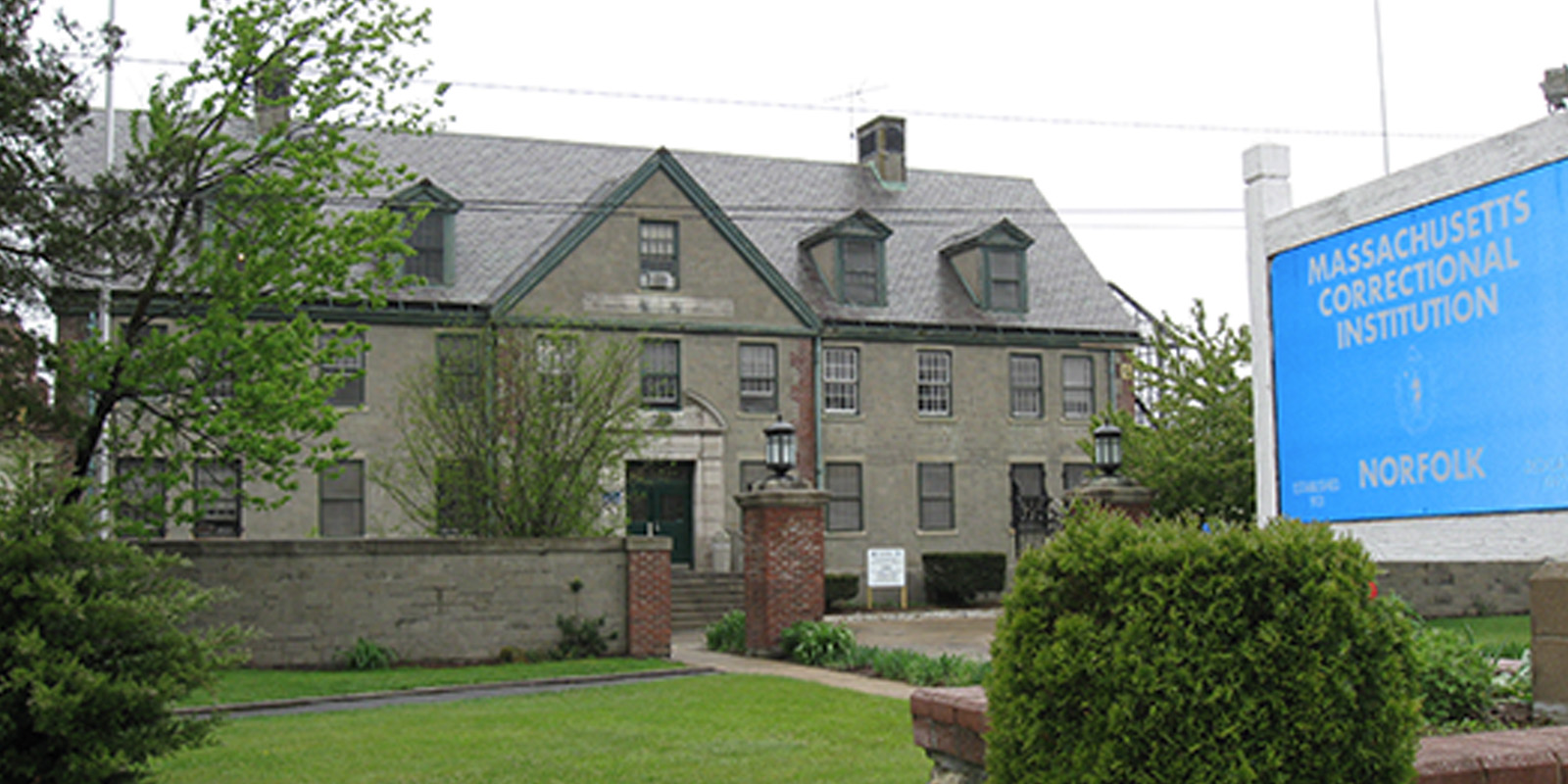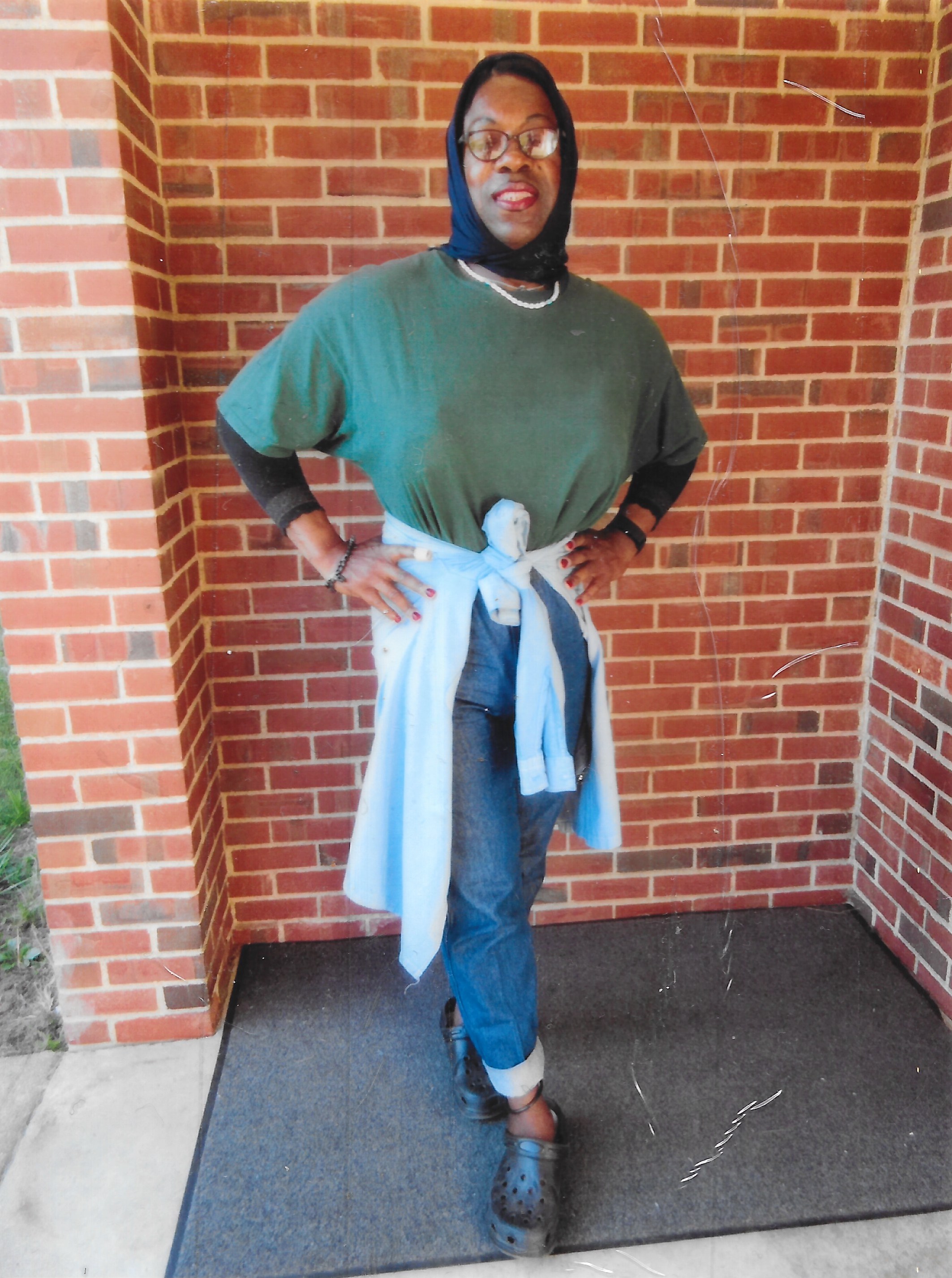
Massachusetts Correctional Institution - Norfolk, in which Candace Shekinah Africa is incarcerated, is a medium security facility for males in Norfolk, Mass. Courtesy of the Massachusetts Department of Correction.
Candace Shekinah Africa
Candace Shekinah Africa began struggling with her gender identity early on. By the time she entered the third grade, she felt like a little girl trapped in a little boy’s body. She was born as Richard Henry Adams II on April 20, 1967, in the now-closed Crittenden Memorial Hospital in West Memphis, Arkansas, a town bordering the Mississippi River.
Her African American and Indian parents, Richard Henry Adams and Joyce Adams, homeschooled her until the first grade. She excelled, earning a double promotion from the first to the third grade. Socially, however, she was already experiencing the throes of gender dysphoria.

Candace Shekinah Africa was incarcerated in 1996 for two counts of murder and arson. She is serving two life sentences at MCI - Norfolk. Courtesy of Candace Shekinah Africa.
In a series of letters starting in April 2017, as part of a project from Northeastern University’s School of Journalism, Africa detailed her struggles with gender identity up until the moment she killed her parents-in-law and set their house on fire in 1996.
“I can’t begin to explain the journey of pain and tumult that’s experienced, when a little 9-year-old girl (of color) grows up gaining the [understanding] that she is without her “precious orchid” (vagina),” she said in a letter, “and, furthermore, will go on to be called “DICK” for a nickname!“ (Note: The parentheticals are original to Africa’s handwritten letter.)
Africa picked cotton part-time on a plantation where her grandparents used to be sharecroppers, and participated in the Boy Scouts. She felt she was being pigeonholed by her small town ideals into the person her family and society wanted her to be.
Around this time, her father relocated the family to Peoria, Illinois, where he started working for the Caterpillar Tractor Corporation. In a larger city and with a new neighborhood, new peers and a new school system, Africa explored her femininity, emulating her mother.
“Mother Joy was the unchanging & eternally present female in my universe,” she wrote in a letter. “[…] She instilled in me the womanly source upon which to return.”
Under the dominion of her father’s authority, she dedicated herself to sports, community service and local college before enlisting in the United States Army, her first “true act of defiance.”
...
She registered to become a combat paramedic at the age of 18 and went to Fort Leonard Wood, Missouri, for basic training and Fort Sam Houston, Texas, for occupational specialty training. She finally felt independent but was still hiding behind a uniform.
“Old enough to [have] sex, drink, smoke, die for my country, sell drugs, run the streets,” she wrote, “but, not yet grown enough to ‘LIVE MY TRUTH.’”
After returning home, she enrolled with a football and wrestling scholarship at Norwich University Military Academy in Northfield, Vermont, which she described as “the whitest state in America.” As a symbol of status, Africa was given a letterman’s pullover, embroidered with her designated nickname.
“Yes! You probably guessed; to the world… and my new universe, I was christened ‘DICK’,” she said in a letter. “I think back and the tears are always right there, plentifully.”
She coped by pretending that her penis was a slightly deformed and elongated clitoris. This self-preservation allowed her to endure the rigors of military college long enough to meet her wife, Jennifer Levesque, in 1988.
Africa, who had not yet changed her name, and Levesque got married in 1994 and had a child two years later. A month after the birth of her daughter, Africa was struck by a car in a hit-and-run while crossing a street in Vermont. According to court documents, she suffered a knee injury and her relationship with Levesque started to fall apart.
“My version of miscegenation [interracial relationship], with so many precious memories of romance, came crashing down when I was struck by an automobile,” she wrote.
Africa was convinced that Levesque’s parents were trying to break up their marriage because she was black. Determined not to let that happen, she moved in to the family’s home in Foxborough, Massachusetts, in June 1996.
...
On July 18, 1996, Africa took the couple’s daughter to a day care center and dropped Levesque off at the train station to head to Boston for work. When the mother-in-law came home from work, Africa stabbed and beat her to death, claiming that Nancy Levesque was going to kill her.
Africa then prepared to burn the house before waiting for father-in-law Arthur Levesque to return. When he did, Africa beat him with a sledgehammer. His body was discovered on an enclosed porch. Africa, who was 29 at the time, set the house on fire and drove away before calling police.
She was sentenced to two life sentences for murder and 19 to 20 years for arson. Africa was initially incarcerated at Massachusetts Correctional Institution – Cedar Junction in Walpole before coming to MCI – Norfolk, the male prison where she now resides. Around 1999, she came out as transgender to the mental health director.
“It was very dangerous and traumatic. At the time, there was no GID [Gender Identity Disorder] policy as is now,” she said in a letter. “To be invisible and denied treatment because the absence of a policy was (and is) a form of living hell, especially as a lone warrioress.”
Since being diagnosed with gender dysphoria, Africa has not been considered an appropriate candidate for hormone treatment and sexual reassignment surgery, according to an Inter-Facility Clinical Case Conference Form.
She has experienced thoughts of suicide and cutting off her penis. Her mental health clinician also indicated that she suffered from impulse control issues, anxiety, anger and poor sleep.
Since arriving at MCI – Norfolk, Africa said that the biggest attacks on her “feminine psyche” have come from some of the seven other trans women incarcerated with her. Drama and social dysfunction have prevented real cohesion among the group.
“Similar to the Amish practice of ‘shunning,’ some transwomen/women refuse to be supportive, speak to or even acknowledge the existence of others,” Africa said. “Daily, I witness some of the eldest women do this to others. It is a form of death.”